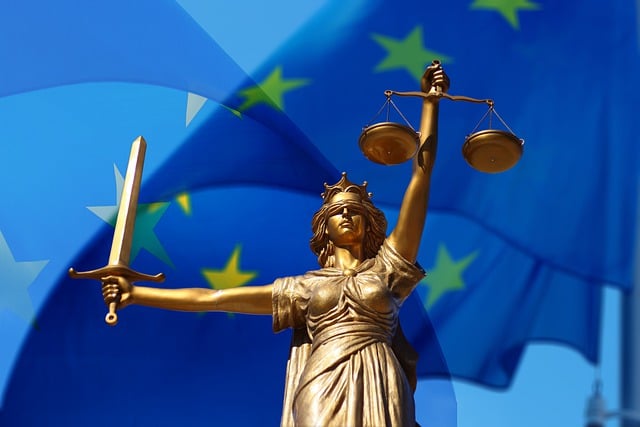RF Regulatory Agency (RFRA) investigations aim to enforce RF technologies rules, focusing on emission standards, device safety, and spectrum utilization. Proving guilt beyond reasonable doubt is critical, involving data collection, signal analysis, and expert testimony. Gathered evidence, including documents and testimonies, must be robust for successful outcomes impacting business operations. Understanding jurisdiction, procedures, and the high burden of proof are key to navigating these investigations successfully.
RF Regulatory Agency investigations are pivotal in ensuring compliance with wireless communication standards. This article delves into the intricacies of these processes, beginning with understanding the jurisdiction of regulatory bodies. It explores strategies for gathering evidence, emphasizing the significance of proving guilt beyond reasonable doubt. Furthermore, it navigates penalties and enforcement actions, offering insights for businesses to mitigate risks and ensure adherence to RF regulations.
- Understanding RF Regulatory Agency Jurisdiction
- Gathering Evidence for Investigations
- The Burden of Proof: Guilt Beyond Reasonable Doubt
- Navigating Penalties and Enforcement Actions
Understanding RF Regulatory Agency Jurisdiction

RF Regulatory Agency investigations carry significant weight, as they encompass the enforcement of rules and regulations pertaining to radio frequency (RF) technologies. These agencies operate within a defined jurisdiction, focusing on ensuring compliance with standards that govern electromagnetic radiation emissions, device safety, and spectrum utilization. Understanding this jurisdiction is crucial in high-stakes cases where proving guilt beyond reasonable doubt becomes paramount. Across the country, these investigations can range from examining specific product designs for adherence to safety norms to tracking down sources of interference disrupting critical communications networks.
The process involves meticulous data collection, signal analysis, and expert testimony. In many instances, agencies must navigate complex legal landscapes, especially when dealing with international companies or technologies that span state boundaries. Avoiding indictment is a key consideration, as the outcome can significantly impact product approvals, market access, and financial repercussions for businesses. Therefore, understanding jurisdiction, procedural requirements, and the burden of proof, such as demonstrating guilt beyond reasonable doubt, are essential elements in navigating these investigations successfully.
Gathering Evidence for Investigations

When an RF Regulatory Agency initiates an investigation, gathering evidence that definitively proves guilt beyond reasonable doubt is paramount. This process involves a meticulous review of documents, records, and any available technical data related to the alleged violation. Experts in wireless communication and regulatory compliance are often engaged to analyze these materials, ensuring they align with industry standards and legal frameworks.
The agency may also conduct on-site inspections, seize equipment for further analysis, and issue subpoenas for witness testimonies. In high-stakes cases, especially those involving general criminal defense strategies, the evidence must be robust and irrefutable. This is particularly crucial in jury trials where the outcome hinges on the presentation of concrete facts that leave no room for doubt, making every piece of evidence gathered and presented of utmost importance.
The Burden of Proof: Guilt Beyond Reasonable Doubt

In RF Regulatory Agency (RFRA) investigations, proving guilt beyond reasonable doubt is paramount. The burden of proof lies squarely on the agency, requiring them to present compelling evidence that leaves no reasonable doubt about a violation. This standard is crucial, ensuring fairness and preventing wrongful convictions. It demands an unprecedented track record of fact-finding and analysis, where every piece of evidence must align consistently with the alleged violation.
RFRA investigations often involve complex technical matters, making it essential for agencies to marshal clear and convincing evidence. This rigorous process ensures that decisions are based on solid facts rather than speculation or bias. For his clients facing such investigations, having a thorough understanding of this burden of proof is vital, as it shapes their defense strategies and ultimately determines the outcome of the case across the country.
Navigating Penalties and Enforcement Actions

Navigating Penalties and Enforcement Actions involves a complex interplay between legal strategy and understanding the regulatory framework. The RF Regulatory Agency, like many government bodies, enforces rules to ensure fair competition and public safety. When investigating potential violations, their goal is to prove guilt beyond reasonable doubt. This means presenting compelling evidence and arguments to demonstrate that the accused party has indeed breached regulatory guidelines.
A successful defense strategy in these cases often revolves around challenging the agency’s proof and raising doubts about the interpretation of facts. Experienced legal professionals specialize in white collar defense, helping clients avoid indictment by negotiating settlements or, in case of a trial, securing winning challenging defense verdicts. The key lies in meticulous preparation, thorough examination of evidence, and presenting alternative narratives that benefit the accused while adhering to the principles of fairness and justice.
In navigating RF Regulatory Agency investigations, understanding jurisdiction, gathering evidence, and meeting the burden of proof are paramount. By ensuring compliance with regulations and preparing robust defenses, businesses can mitigate penalties and enforcement actions. Ultimately, proving guilt beyond reasonable doubt is crucial to resolving these intricate matters successfully.






